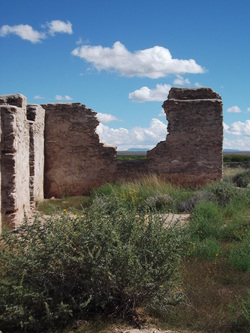
The de Bremond family was originally French, but migrated to Switzerland during the French revolution.Charles was born on the tenth of July in 1864 in the town of La Chatelaine, in the canton of Fribourgh, Switzerland. He served in the Swiss Army for eight years.
In 1891, he and his uncle, Henry Gaullier, immigrated to the US. Three years later they bought 280 acres of ranch land northeast of Roswell, New Mexico and started a successful sheep operation.
de Bremond was civic minded. He participated in Roswell's cultural and social activities and served as a Captain in New Mexico's National Guard.
 Photo taken during the Punitive Expedition into Mexico. de Bremond is the man in the center.
Photo taken during the Punitive Expedition into Mexico. de Bremond is the man in the center. Battery “A,” First New Mexico Field Artillery, was one of the first to respond. After being ordered to Fort Bliss, Texas for training, Battery A was attached to the Sixth U.S. Field Artillery. Approximately 5,000 U.S. troops spent nearly a year in Mexico in what turned out to be an unsuccessful attempt to capture Villa. When the Expedition ended, the battery, which had received many accolades, was mustered out of federal service and returned to Roswell.

de Bremond taught many of his men to speak French, which came in very handy during their deployment.
The training Battery A received while attached to the Sixth U.S. Field Artillery proved invaluable, and Battery “A” became one of the best known American Expeditionary Force units of WWI.

In the course of the war, de Bremond was promoted three times, rising from Captain to Colonel. By the time the war ended on November 11, 1918, the battery's four guns had each fired over 14,000 rounds. This was more rounds fired in combat than all the other American heavy mobile field Artillery combined. None of the men in the battery died during the war, but 12 were wounded. For some, including de Bremond, their wounds proved fatal.
The men of the Battery earned six battle stars for their victory medals and their commander, Lt. Colonel Charles M. DeBremond, received the Distinguished Service Medal posthumously.
de Bremond inhaled poison gas during the battle of the Marne in July 1918. He was evacuated to the states, where he gave lectures on the war to help boost civilian morale and support. He also worked on the creation of the Veterans of Foreign War. He died of pulmonary tuberculosis, a direct result of the gas attack, on December 7, 1919 in Roswell, New Mexico. He was 55 years old. His funeral was one of the biggest events Roswell had ever seen. The deBremond National Guard Facility, located at the Roswell Industrial Air Center, was named in his honor.
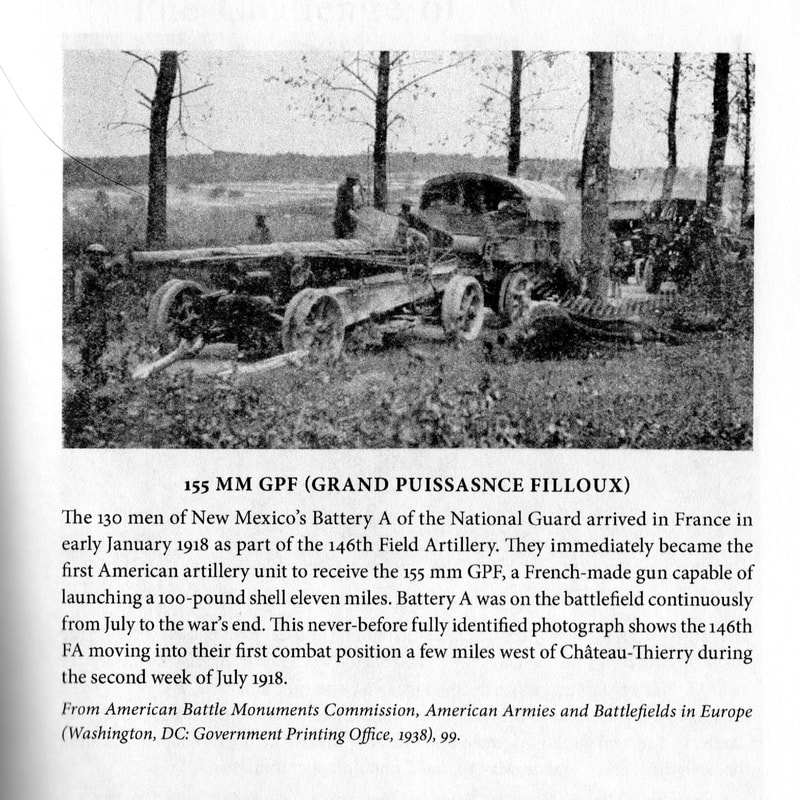





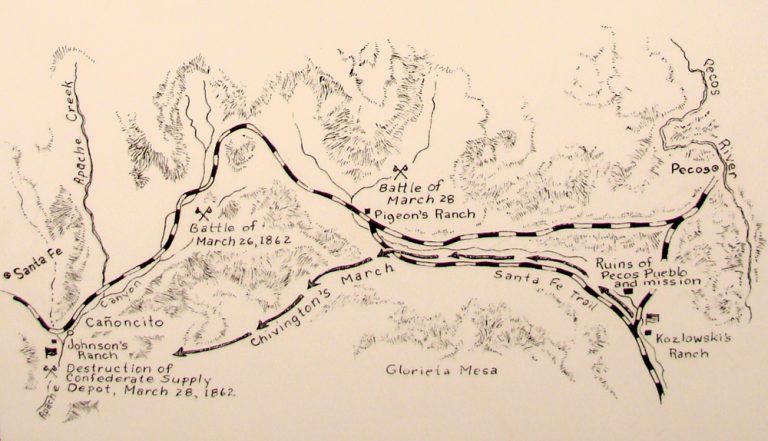







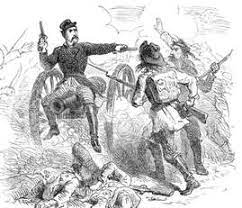








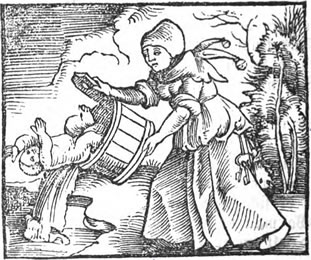

![New York : Published by E. Anthony, 501 Broadway, [ca. 1846]](/uploads/3/4/7/6/34765234/2132311.jpg?212)




